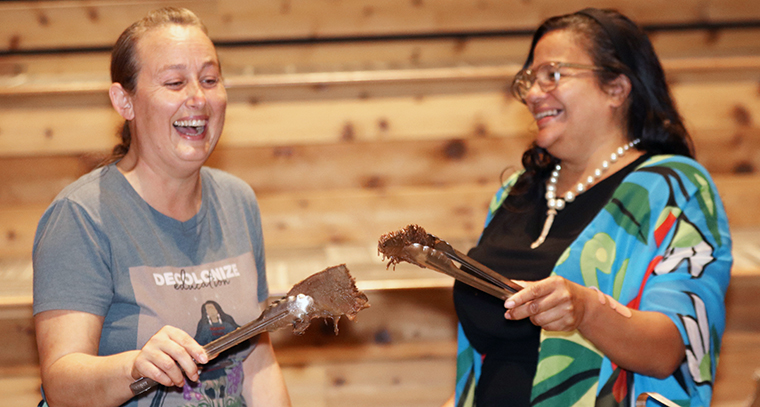
By Micheal Rios, Tulalip News
The sharing of a meal may be the simplest, yet most effective, aspect of promoting community. That could explain why Tulalip prioritizes hosting so many annual events and holiday celebrations, all either beginning with or ending with a meal. It’s the act of sharing a meal with dozens, hundreds or even thousands of fellow Tulalip community members that cultivates the shared sense of identity that is routinely projected out to the rest of the world.
But what if that shared sense of identity could be taken to new level by incorporating traditional foods into those meals? What if ancestral connections to land, air, and sea were strengthened simply by establishing a space for traditional foods into your diet? What if generational, historical, and ongoing systemic traumas could be healed by intentionally eating what are ancestors ate?
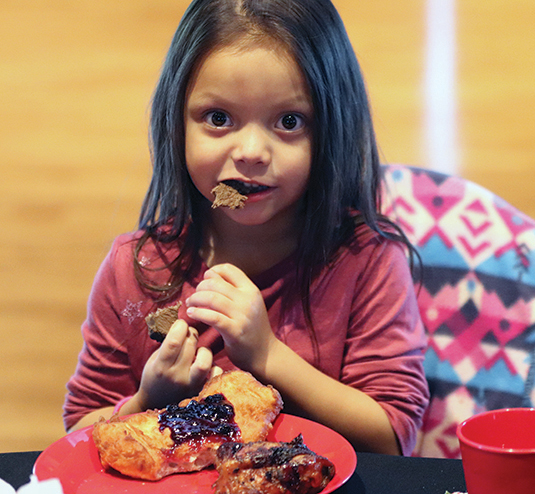
HUGE questions, we know, but ones that were at the forefront of the Tribes’ latest Season of Healing installment hosted at the Gathering Hall on September 16. Labeled ‘Our traditional foods are powerful’, an estimated 130 gathered in community to share a taste bud expanding meal crafted with an assortment of traditional foods and locally sourced, unfiltered love.
“We served roasted bison and chicken with some traditional seasonings, a bison meatball soup, mac salad and green salad with native ingredients sprinkled in, sweetgrass frybread with homemade huckleberry jam, elderberry and sweetgrass lemonade, and a fireweed and blackberry low sugar juice. Putting all that love into every bite,” detailed Indigenous educator Linzie Crofoot (Tlingit).
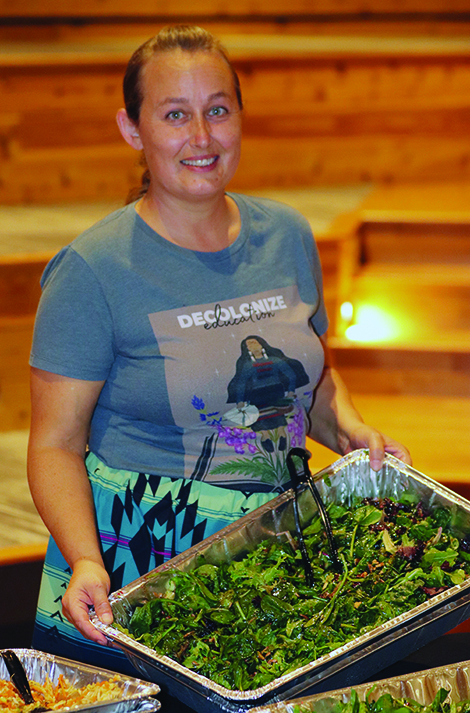
Linzie and her fellow Naa káani Native Program member Martin Napeahi (Tulalip) helped prepare a meal that brought their local community out in droves. More than that, the meal was a means of introducing certain traditional foods to those who never had them before and reminding others just how delicious traditional foods can be.
Community members of all ages were witnessed filling their bellies through savory bites and insatiable mouthfuls of scrumptious deliciousness. Ample nutrition was received by the body while the spirit was replenished with ancestral medicine.
“What is the power of traditional food? And why do we need it? We could discuss the diabetes and heart disease rampant in our community. The lower life expectancy and whole host of other ailments, chronic diseases, and opioid crisis our people disproportionately affect by. But that kind of discussion just doesn’t feel right because we’ve all heard that data, over and over again,” said Linzie from the Season of Healing podium. “More than that, we can feel the data. We can feel it in our hearts, in our families, and in our community.
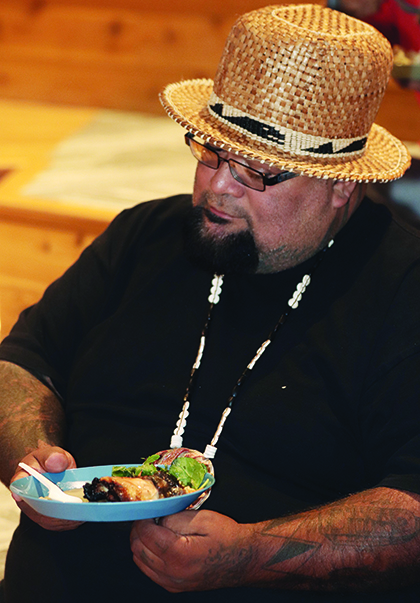
“Being shown more data on a flyer or some presentation isn’t going to inspire change. And that’s what we need to see most in our community, systemic change in our community health. This starts with the people, with us, with individuals like you and me choosing to change the way we eat and choosing to reconnect to our traditional ways through food,” she continued.
The Ted Talk style portion of the evening featured Linzie, Martin, elder Monie Ordonia and board of director Hazen Shopbell sharing their personal journeys grounding themselves in culture via food, medicine, Treaty Right protected practices (hunting, fishing, gathering, harvesting). They offered all kinds of advice for those looking to become part of the change our community so desperately needs.
“The truth is we have generations of trauma and it will take generations to heal,” declared Linzie. “My prayers are for you to become the foundation for inspirational change in your family. It has to start somewhere, so why can’t it be you? You have the power to be the one who changes the story for your kids and their kids’ kids.
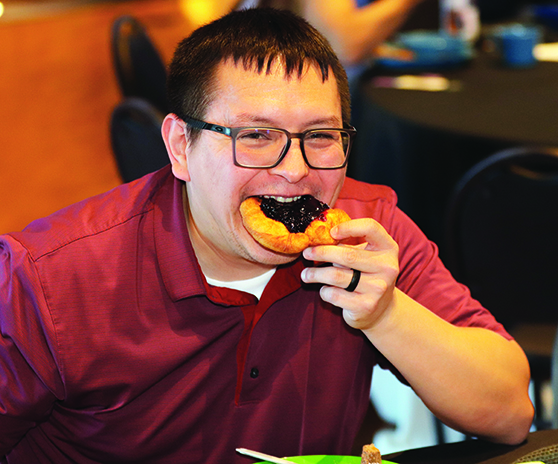
“I know the thought of eating traditional foods can seem overwhelming and for some they don’t even know where to begin,” she added. “The idea of reconnecting with our traditional foods seems very big and we seem very small compared to the past. So start small. One ingredient once a week. Learn about one plant and how you can use incorporate it in your cooking. You don’t have to know everything right away. Start with one, just one. Then add another one. Until its normalized. That’s how we, as individuals and as a community, make the change to embrace our traditional foods for the inherent power they have. Our ancestors did. So can we.”
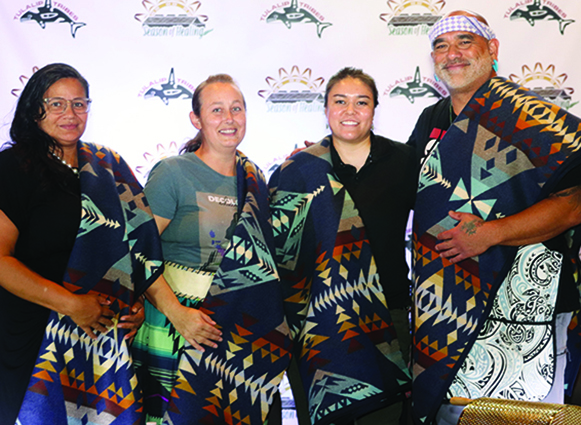
If you want to be part of the change and incorporate traditional foods into your weekly routine there is an easily accessible resource to help. Our Plant Relatives is a year-round guide to gathering and processing Native plant foods and medicines from around the Salish Sea area. This guide is meant to serve as a place for getting started with learning and becoming familiar with gathering foods and medicines throughout the seasons. Best of all, it was created by Linzie and her former student Tayna Greene (Tulalip) and available for free.
To access Our Plant Relatives and all the harvesting knowledge therein, please visit https://archive.org/details/our-plant-relatives.-lcrofoot.-tgreene/mode/2up